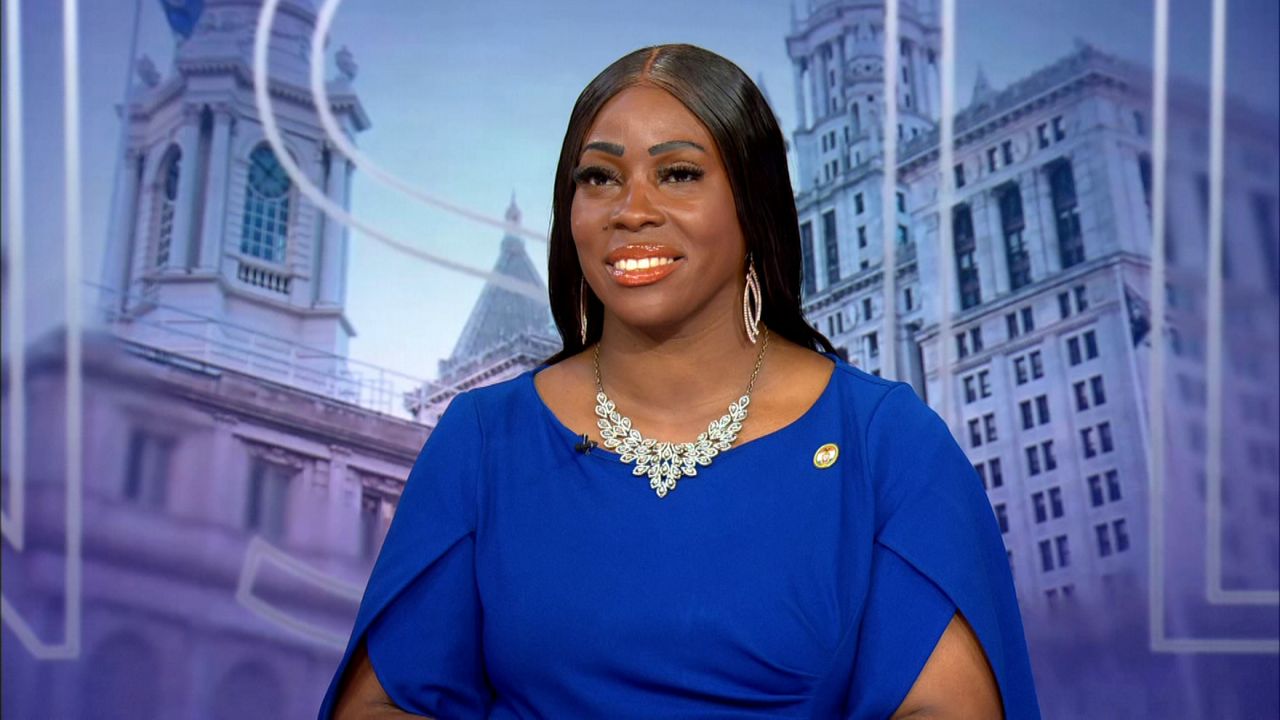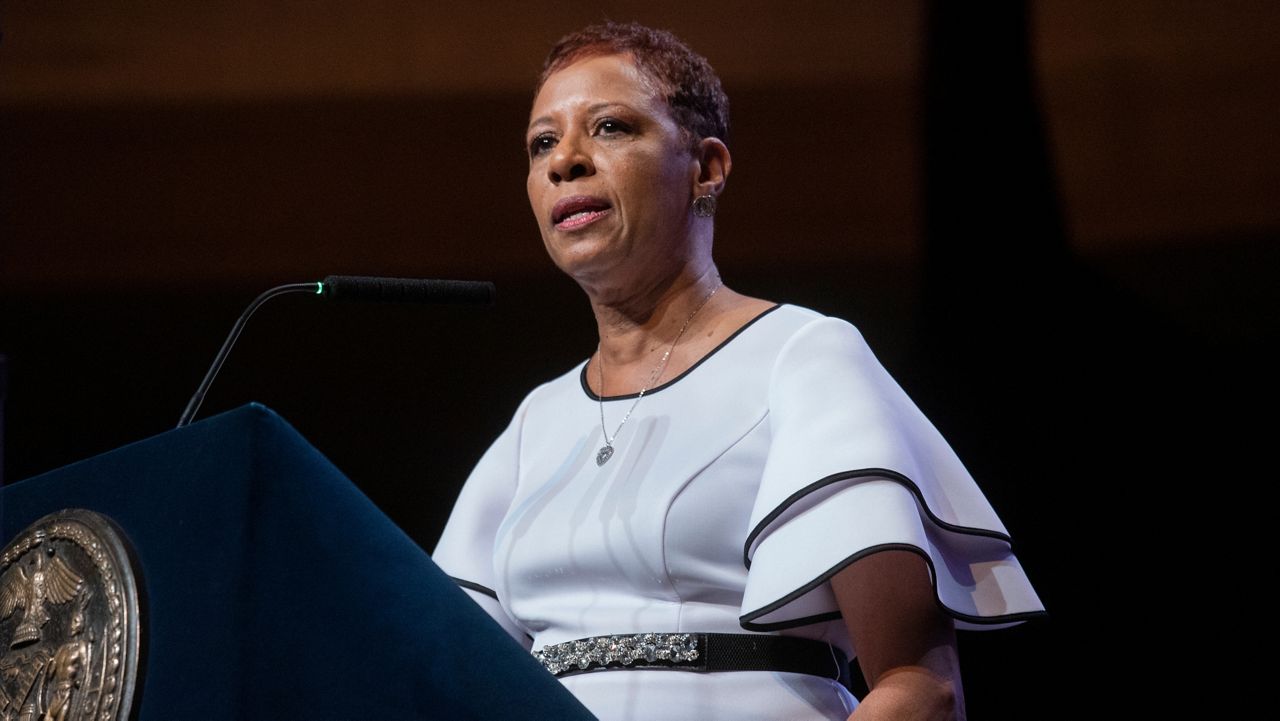NY1 has learned the federal government has issued stop-work orders for more than 50 CUNY programs.
It's unclear at this point what programs are impacted, but there's plenty of concern around initiatives aiming to increase Black and brown participation in the science, technology, engineering and math — or STEM — fields.
At LaGuardia Community College in Queens, educators say a program that hasn't yet been affected by cuts is making a difference.
What You Need To Know
- The Queens STEM Academy program launched in 2022 with the help of a $4.6 million U.S. Department of Education grant. It aims to get female students of color into science, technology, engineering and math — or STEM — fields
- STEM fields are still dominated by men. According to U.S. census data, 18% of women work in STEM jobs, compared to 30% of men who are in STEM
- But Preethi Radhakrishnan, who’s been leading LaGuardia’s Environmental Science Program for about two years, says she’s seeing an uptick in the number of female students
Nineteen-year-old Snigdha Laxme says she feels a great sense of responsibility when she’s working with plants at a hydroponic lab that opened last year at LaGuardia Community College.
“I care and nurture them as I would do to my siblings, so I’m very careful,” Laxme said.
Laxme — who’s majoring in Sustainable Urban Agriculture — moved to New York from Bangladesh nearly 10 years ago, settling with her family in the Bronx. She says she’s always been interested in science.
Her dream is to become a soil scientist for the U.S. Department of Agriculture — and her future is looking bright. Cornell University recently accepted her into its College of Agriculture and Life Sciences.
“They have a lab where you can do soil testing, and you’ll have soil from different parts of the world or different places, and you can test the pH, the fertility,” she said.
More female students like Laxme are entering into STEM careers in the U.S., but the STEM field is still dominated by men. According to U.S. census data, 18% of women work in STEM jobs, compared to 30% of men who are in STEM.
But Preethi Radhakrishnan, who’s been leading LaGuardia’s Environmental Science Program for about two years, says she’s seeing an uptick in the number of female students.
“In that short time, I have seen almost a 50% increase in the number of female students that are in my classes, and that’s pretty significant. They seem very empowered,” said Radhakrishnan, who’s the lead professor of the hydroponic lab.
Thilleli Mehrazi, 21, moved from Algeria to the city about a year ago. The Queens resident, who’s currently a biology major at LaGuardia, says her passion for science started when she was a young child reading books about science.
Mehrazi is transferring to CUNY’s Queens College next year on a scholarship through the Queens STEM Academy. The program, which launched in 2022 with the help of a $4.6 million grant from the U.S. Department of Education, creates a pipeline for students from LaGuardia to Queens College.
According to LaGuardia, 72% of STEM majors who graduated from LaGuardia during the 2022-2023 academic year transferred to a four-year program, with nearly 25% enrolling in Queens College.
“My interest to Queens College started before even I apply here to LaGuardia. I know they have this major neuroscience, which is really interesting for me, because I’m really into neuroscience as well,” Mehrazi said.
She says she wants to research diseases to help people live longer.
“I really like to help people,” she said.
LaGuardia aims to get students who start in STEM to stay in STEM — and eventually to the workforce, to impact the world around them.
“I am continually inspired by my students. They are extraordinary,” Radhakrishnan said.
CUNY officials say 61 CUNY research projects have received stop-work orders from federal agencies. It’s unclear if that funding has been completely taken away, and CUNY did not elaborate on which projects are in question.
NY1 also found the dean of the CUNY School of Medicine testified in front of a City Council hearing at the end of January — days after President Donald Trump took office — where she was asked specifically about a $19.3 million grant from the National Institutes of Health to build a health care center in Harlem. That money would also go toward research looking at racial disparities within the health care system.
During the testimony, Dr. Carmen Renee Green said that CUNY had worked hard to earn that grant, and that they’d fight for it in the face of any political challenges.
Today CUNY officials say there’s been no change in status for that program.







